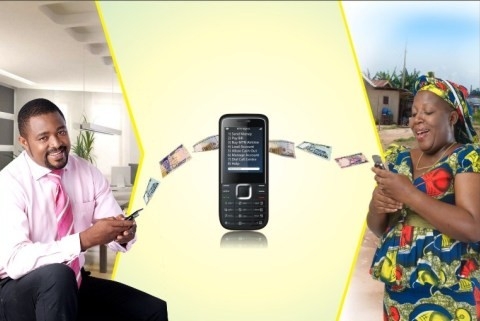
Mobile Financial Service is a generic name referred to all kinds of mobile money service transactions in Ghana. However, various telecommunication network Providers in Ghana have different names for it. For example MTN calls it MTN Mobile Money, while Airtel calls it Airtel money, and for Tigo users, it is known as Tigo Cash. But have no doubt at all about the name it’s still the same business.
Cash transfer has often been considered a cumbersome process especially when it is between banks and requires elaborate paperwork. To add to the discomfort, a transfer could take hours or even days but same cannot be said of mobile money transfer services which are done with just clicks of buttons on the mobile handset and it appears this is creating a jobs for many.
In Tadzevu, a small town located in the Ketu District of the Volta Region with a population of about 25,000. Most of the people living here are peasant farmers and petty traders. There are no banks here for money transfer. As a result, the mobile money transfer business is big here. There are agents spread across the length and breadth of the town. Dedzo Dzidefo, is an MTN merchant from Tadzevu. He tells me business with MTN Mobile Money is really good but the network challenges are a barrier to good sales.
“The Mobile Money Service is really good, the population over here is not huge but in a day I’m able to get about hundred customers who come to withdraw or send money. We’re making a lot of money out of it in a day.”
According to him, network challenges can make withdrawals difficult. “My network goes off all the time despite several complaints made to MTN Ghana but I haven’t gotten any favorable response yet.”
Telcom company MTN Ghana was the first company to introduce mobile financial services in Ghana in July 2009. It called it MTN Mobile Money, followed by Tigo with Tigo Cash and Airtel with Airtel Money. Today mobile money transfer is everywhere.
I caught up with Genevieve Mensah a student who subscribes to MTN mobile money service in the street of Accra and this is what she has to say:
“I have a friend at Suhum so when I needed some money urgently, I called him early morning and within two hours’ time he sent me the digits and I went and cashed it,” she said.
Jaffe, a business tycoon, however, thinks although the service is fast, it’s too expensive to patronize in contrast with banks when taking service charges into consideration.
“Anytime I go and send money to someone, I pay, so I ask them why they advised me to even register for the mobile money service. I don’t know how it works for other people. Maybe they may be cheating me or that’s how the system works. It’s just a means to rip the poor from the little that they have” he lamented.
That’s not all. Poor network connections sometimes affect the smooth transfer of cash. Raymond Sedro from Tegbi in the Volta Region identifies some hitches with the service.
“My brother has just transferred money to the wrong account and we are making efforts to retrieve the money and we haven’t made any headway. If the company can resolve this problem, then it can be helpful,” he says. “Coupled with that, the network challenges must be addressed”.
Senior Manager of MTN Mobile Money explains MTN has experienced vast growth in business so far due to drastic efforts his outfit is exploring to turn around the business.
“The service is beginning to gain a lot of attraction. We are seeing a lot of patronage. We see it year on year, month on month, growth in the service. So November performance was better than October. So each month we see a growth; quite significant growth we’ve seen due to dint of hard work, commitment and dedication to service and we believe that it will continue to grow in years to come,” he emphasized.
Well it’s obvious this business has come to stay. Sending cash at the tap of a few keys on your mobile handset. And the alternatives are many. This has been Joseph Kobla Wemakor’s report.


